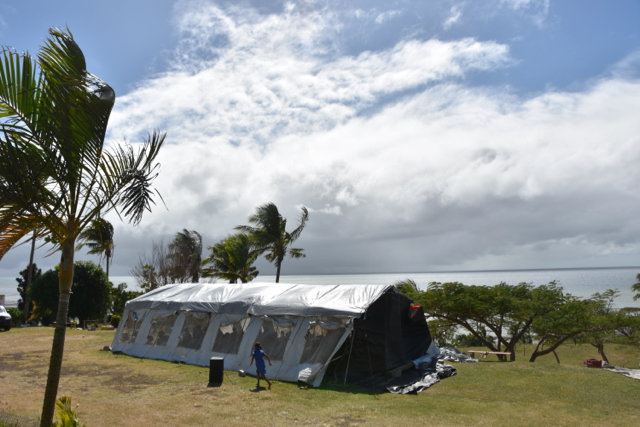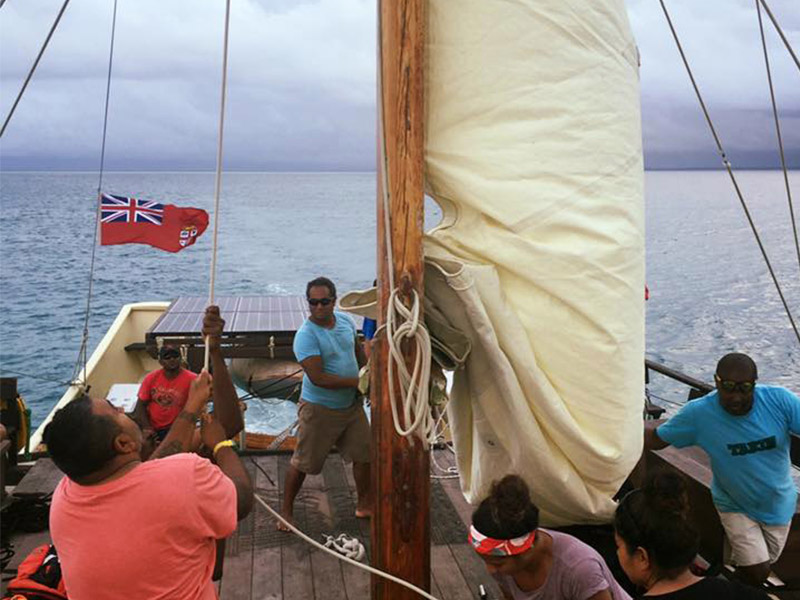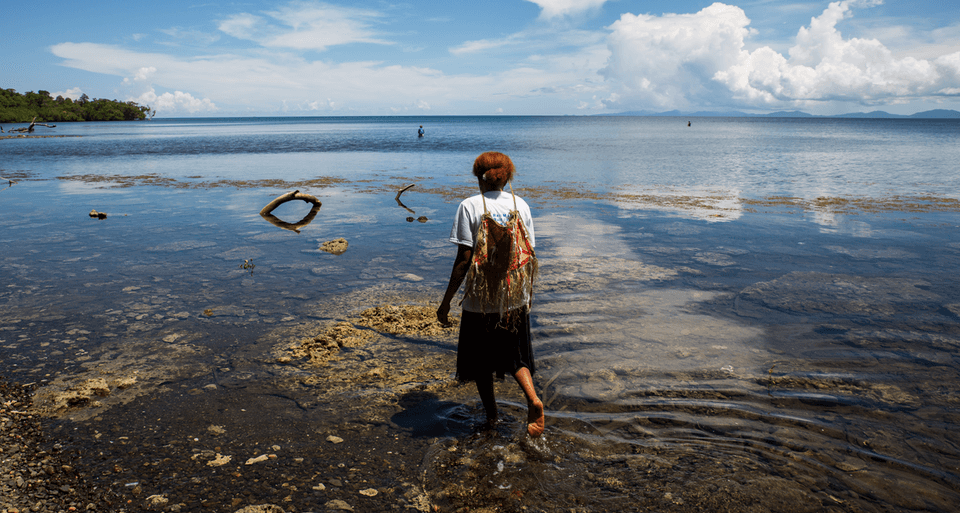I saw the impact of a cyclone first hand
| I travelled with my family as part of an Exposure trip through UnitingWorld to Fiji. One of the most meaningful experiences for me was going by speedboat to the island Ovalau, significantly damaged by Cyclone Winston in February of 2016.
Talking to our guide James Baghwan, we came to understand that the majority of the people on the island barely had the means to provide for their family’s basic needs. They don’t have the capability to move somewhere else, even to the main island, where they would be better equipped during times of cyclones. Even if they did, most are living on the land that their ancestors did, and so have significant cultural and historical ties to the land, which provides them with a sense of identity. Cyclone Winston was expected to completely miss the island, and so the people were unprepared. You can imagine the chaos, panic, and terror they would have experienced in the mad rush to secure what little they had with heavy materials and find a place where they might be safe. The damage was strong enough to beach a ship, lift up and move water tanks as well as destroy houses and buildings. James told me people would probably have run up the mountain and lay on one of the ringing roads, holding onto whoever or whatever they could. They would have stayed like this for many hours, desperately hoping and praying that they wouldn’t be blown away or hit by debris, all the while listening to the terrifying sounds of everything they knew being ripped violently apart. We can only begin to imagine the fear, panic and desperation they would feel and how psychologically damaging this would be. Their whole lives dictated by this fear, trapped in this cycle of working to repair what is lost only to see it destroyed the next time and have to begin again. This fear would only be intensified by the threat that global warming places on them – of bigger, more powerful, more unpredictable cyclones. Add to this the sheer frustration they must feel watching the powers of the world – who could do something to help them or to help prevent global warming – yet who debate that it exists. After this conversation, I began to wonder: in the midst of all of this, how do people on that island find true peace and happiness, when they are under such threat and have so little? And the people that we met did seem happy and were welcoming. And it reminded me of a Bible passage from Matthew 6:19-24: “Do not store up for yourselves treasures on earth, where moths and vermin destroy, and where thieves break in and steal. But store up for yourselves treasures in heaven, where moths and vermin do not destroy, and where thieves do not break in and steal. For where your treasure is, there your heart will be also.” Thanks to sixteen year old Hannah for allowing us to share her reflection with you. If you’re keen to find out more about what the Pacific church is doing to protect against cyclones and how they’re working to save lives in disaster, read more about the project or make a donation here. |




